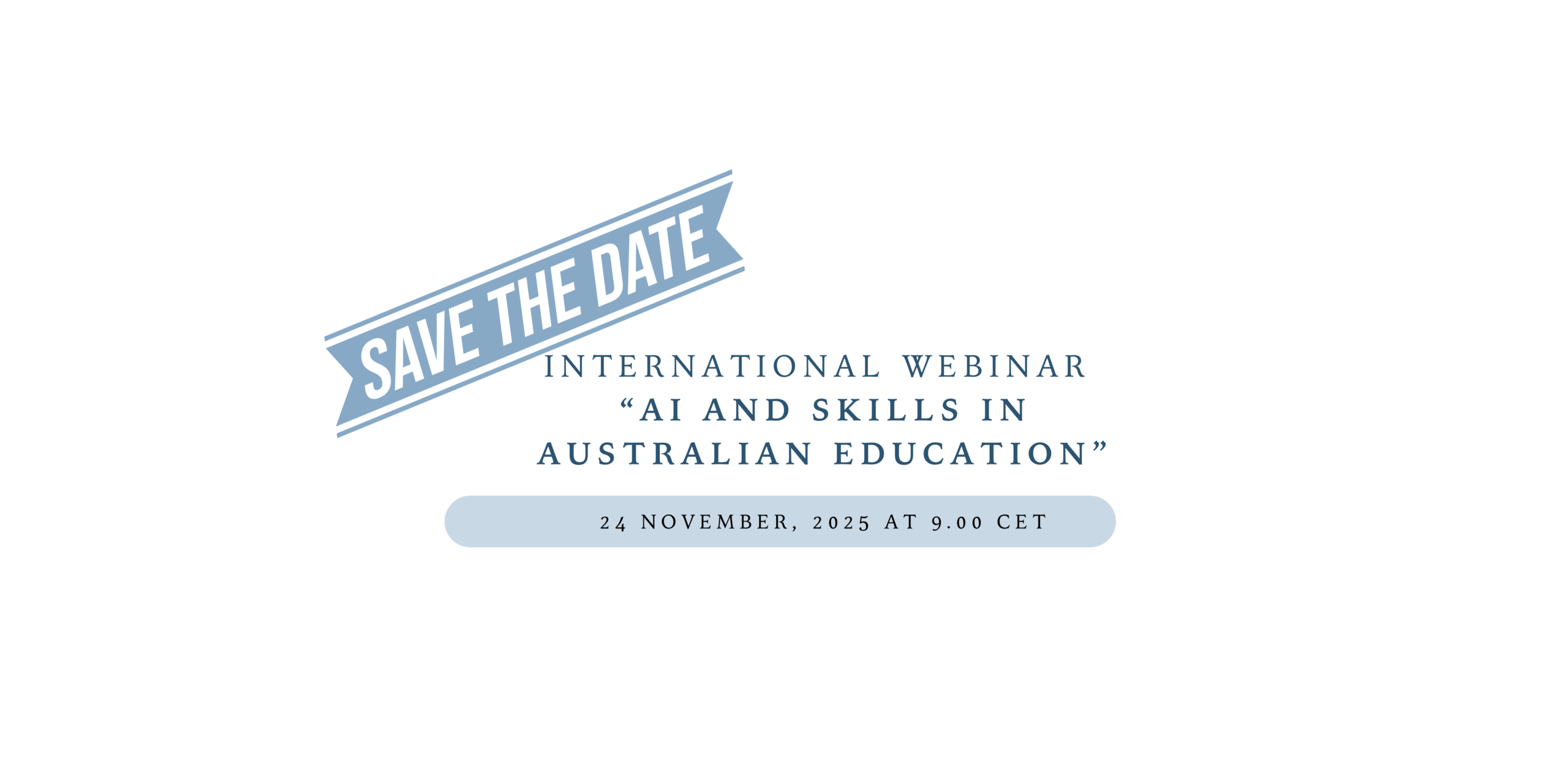AI@School Curriculum and Resources
Before most people had heard of OpenAI, Pontydysgu coordinated an Erasmus+ schools project to engage teachers in how to teach with and how to teach about AI. It covered the fundamentals; terms, technologies, ethics, and gave practical examples for using AI in the form of a toolkit and scenarios. There’s a curriculum written in a train the trainer style and a short 10 things about AI course too. The AI@School team included a mixture of teachers, teacher trainers, academics and EdTech experts. Many of them started work on the project not knowing the first thing about Artificial Intelligence. They spent […]
Webinar “AI and Skills in Australian Education”
📅 Monday, 24 November, 2025🕖 7:00 pm AEDT | […]
How to Use Generative AI in Educational Research
I’ve not read this yet. But from the abstract it looks promising and it comes highly recomended by friends I trust on LinkedIn. But the reason for posting it now and unread is that until November 3, it is available for free download. And we all know books are expensive. Anyway, here is the abstract. Artificial Intelligence technologies have impacted our world in ways we could not have imagined a decade ago. Generative AI (GenAI), a powerful, complex and general use subset of AI has become available to the public in recent years. GenAI’s effect on education, research, and academic […]
Is the Generative AI Boom Heading for a Bust? A View from Vocational Education
Over the past year, it has become almost impossible to avoid the relentless hype surrounding Generative AI. We are told it will revolutionize everything, from how we work and learn to the very fabric of our economy. Yet, a growing chorus of skeptical voices, from seasoned investors to tech commentators, is asking a question that feels both urgent and familiar: are we in the midst of a colossal AI bubble, and if so, what happens when it pops? This is not just a question for Wall Street. For those of us in vocational education and training (VET), the answer has […]
Thing 9 – Supporting SEND pupils
As education professionals, we’re always looking for new tools to remove barriers and create more inclusive classrooms. In recent years Generative AI has promised to do just that, but there hasnt been a huge emphasis on the how or the why. You might have heard of tools like ChatGPT, Gemini, and Claude in the context of essay writing, but their true power for Special Educational Needs and Disabilities (SEND) lies in the potential to personalise learning at scale. Think of it your chosen GPT as a tireless teaching assistant that can instantly adapt resources to suit an individual pupil’s needs. […]
Using Machine Learning To Help Refugees Succeed
The Stanford Immigration Policy Lab has developed GeoMatch, a machine learning tool designed to optimize the placement of refugees in host countries to enhance their employment prospects. By analyzing individual refugee characteristics—such as country of origin, language skills, gender, and age—alongside the attributes of potential resettlement locations, GeoMatch predicts where refugees are most likely to find employment. Initial studies demonstrated that using GeoMatch could increase employment rates by approximately 40% in the U.S. and 75% in Switzerland. Dylan Walsh, 2023, HAI Stanford Check out the AI Cookbook inventory for more literature, resources, best practices and tools.
Explainable Disruption, Dilemmas and Directions part 2
Here is part 2 of a series of summaries of the provocative essays published in UNESCOs AI and the Future of Education Part one is here https://pontydysgu.eu/2025/10/explainable-disruptions-dilemmas-and-directions/ Page 59: Challenging hyper-personalization: Towards (re-)socializing learning (Carla Aerts) Carla Aerts cautions against AI-driven hyper-personalization, which risks isolating learners in algorithmic echo chambers and eroding the social fabric of learning and killing the social, collaborative spirit of the classroom. Instead, the author suggests using AI to help students work together better, improving conversation and teamwork rather than replacing it. Page 65: Infantilizing, echo chamber, or the dawn of a new enlightenment (Paul Prinsloo) Paul […]
The Real Impact of AI on Work: It’s About Control, Not Job Losses
It’s hard to keep up. Every week seems to bring a new wave of breathless commentary about AI and the future of work, often swinging between utopian promises of liberation and dystopian fears of mass unemployment. It’s a debate that, as the new European, Joint Research Centre (JRC) report “Work in the Digital Era” points out, has been recurring for a long time. But this report, which synthesises over seven years of detailed research across Europe, offers a refreshingly sober and evidence-based perspective. In contrast to the fears over the impact of technology on employment, the JRC’s research concludes that […]
80 per cent of young people in the UK are using AI for their schoolwork
There are an increasing number of studies looking at how young people are using AI for learning or otherwise. Although I am not convinced by the title, “Teaching the AI-Native Generation,” a new report from Oxford University Press offers a somewhat sobering, glimpse into how young people in the UK are actually using these new tools. What makes this report particularly interesting is the size of the survey. Researchers surveyed 2,000 students aged 13–18 across the UK and the results are both encouraging and challenging. Unsurprisingly, the report finds that AI usage is already widespread. 8 in 10 young people […]
TildeOpen LLM: A European AI for European Languages
There is a lot of talk at the moment about Large Language Models (LLMs) and their potential impact on all kinds of things, from education to the economy. However, much of the development and focus of these models has been on English, often leaving other languages, especially the smaller languages of Europe, behind. This can lead to inaccuracies and a lack of cultural nuance. But now, a new development from Europe is aiming to change that. Tilde, a winner of the European AI Grand Challenge, has released TildeOpen LLM, a powerful 30-billion parameter language model specifically optimized for European languages. […]



